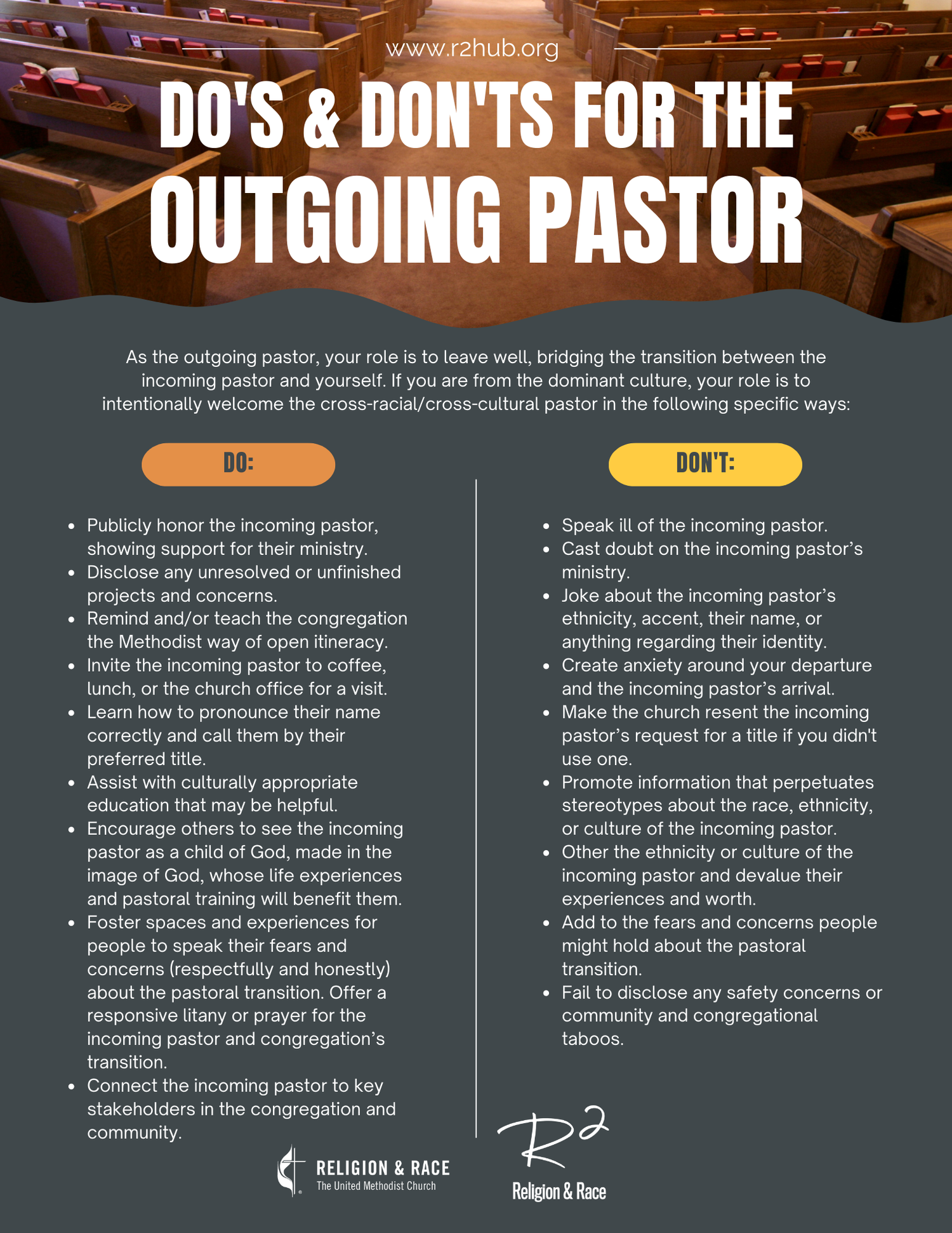Below the graphic you’ll find a full readout of the text it contains. This helps aid accessibility, particularly for those using screen-reading software.
As the outgoing pastor, your role is to leave well, bridging the transition between the incoming pastor and yourself. If you are from the dominant culture, your role is to intentionally welcome the cross-racial/cross-cultural pastor in the following specific ways:
Do:
- Publicly honor the incoming pastor, showing support for their ministry.
- Disclose any unresolved or unfinished projects and concerns.
- Remind and/or teach the congregation the Methodist way of open itineracy.
- Invite the incoming pastor to coffee, lunch, or the church office for a visit.
- Learn how to pronounce their name correctly and call them by their preferred title.
- Assist with culturally appropriate education that may be helpful.
- Encourage others to see the incoming pastor as a child of God, made in the image of God, whose life experiences and pastoral training will benefit them.
- Foster spaces and experiences for people to speak their fears and concerns (respectfully and honestly) about the pastoral transition. Offer a responsive litany or prayer for the incoming pastor and congregation’s transition.
- Connect the incoming pastor to key stakeholders in the congregation and community.
Don’t:
- Speak ill of the incoming pastor.
- Cast doubt on the incoming pastor’s ministry.
- Joke about the incoming pastor’s ethnicity, accent, their name, or anything regarding their identity.
- Create anxiety around your departure and the incoming pastor’s arrival.
- Make the church resent the incoming pastor’s request for a title if you didn’t use one.
- Promote information that perpetuates stereotypes about the race, ethnicity, or culture of the incoming pastor.
- Other the ethnicity or culture of the incoming pastor and devalue their experiences and worth.
- Add to the fears and concerns people might hold about the pastoral transition.
- Fail to disclose any safety concerns or community and congregational taboos.





